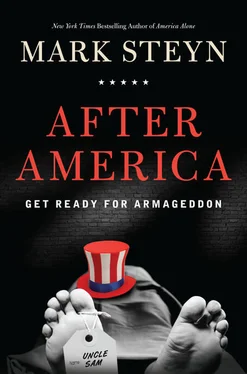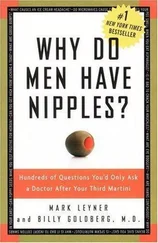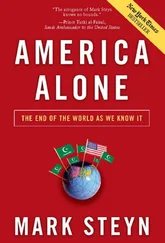This Barack Obama did brilliantly. His rise and the dancing fountains of media adoration accompanying it are a monument to the fraudulence of so much elite “accomplishment.” The smart set were bamboozled because he seemed like one of their own: Columbia, Harvard Law, sort of “editing” a journal yet the only editor in its history never to publish a signed article, giving a lecture or two on constitutional law, handing out leaflets on the South Side of Chicago, voting present, listening to Jeremiah Wright’s conspiracy theories for twenty years, dining with terrorist educator William Ayers…. This is a life? These are achievements?
Well, yes. For the parochial one-worlders among the American elite, that’s a resumé and Sarah Palin’s isn’t. The American Eloi elected one of their own, and, if a year into his reign it was possible to detect signs of embarrassment among some of those gullible enough to fall for such a transparent crock, well, thanks for nuthin’. “I thought he’d do a better job,” whimpered telly genius Jon Stewart. 27
“Based on what, his extensive experience?” responded Instapundit Glenn Reynolds. “Rube.” 28The election of Obama was a profoundly unserious act by an unserious nation, and, if you were Putin, the ChiComs, or the ayatollahs, you would have to be awfully virtuous not to take advantage of it.
Within months of his inauguration, I found a lot of Americans saying to me sotto voce that they had no idea the new president would feel so “weird.” But, in fact, he’s not weird. He’s WEIRD in the sense of those students in the behavioral studies: Western Educated Idle Rich Deadbeat. He’s not, even in Democrat terms, a political figure—as Bill Clinton and Joe Biden are. Instead, he’s a creature of the broader culture: there are millions of people like Barack Obama, the eternal students of an unbounded lethargic transnational campus for whom global compassion and the multicultural pose are merely the modish gloss on a cult of radical grandiose narcissism.
Even as he denies American exceptionalism, he gets turned on by his own.
Or as someone once said, “We are the ones we’ve been waiting for.”
We were waiting for a man who would have been unthinkable as the leader of a serious nation until our civilization had reached such a level of bland bovine prosperity it truly believed that the platitudinous nursery chants it teaches our children as a substitute for education are now a blueprint for governance. Obama is not just a product of his time, but the product of his time.

THE STUDENT PRINCES
In 1940, a majority of the U.S. population had no more than a Grade Eight education. 29
By 2008, 40 percent of 18- to 24-year-olds were enrolled in college. 30
So we’re on track to a world in which the typical American is almost twice as old by the time he completes his education as he was in 1940, and has spent over twice as long in the classroom—and, in theory, gotten twice as much attention from his schoolma’am: the pupil/teacher ratio is half of what it was a century ago. 31Indeed, since 1970 overall public school employment has increased ten times faster than public school enrollment—with no discernible benefit to student performance. 32Here’s reporter Howard Blume in the Los Angeles Times : “Despite thousands of teacher layoffs and shrinking school budgets, Los Angeles Unified, the state’s largest school system, posted gains on annual standardized tests. Schools statewide also posted overall gains in results released Monday.” 33
“Despite”?
Today’s “educators” take no chances with their young charges, to the point of keeping as many as they can in “school” until well into what now passes for adulthood. What dragons have been slain by this semester-creep?
In 1940, before this process got rolling, Americans had a literacy rate of over 97 percent. 34Seventy years later, at a student demo to protest budget “cuts” at the University of Washington, the elderly demonstrators waved printed placards bearing the slogan:
WHO’S SCHOOLS? OUR SCHOOLS! 35
And you’re welcome to them. Or, as their placards would no doubt put it, your welcome to ’em. Were they English majors?
Education is the biggest single structural defect in the United States. No country needs to send a majority (never mind “all,” as is President Obama’s ambition) of its children to college, and no country should: not every child has the aptitude to benefit from college, and not every child who has wants to go, or needs to. For most who wind up there, college is a waste of time, and money, and life. Hacks pretend to teach, slackers pretend to learn, and employers pretend it’s a qualification. Full disclosure: I never went to college, which is why my critics usually preface their dissections with a reference to “the uneducated” or “the unlettered Mark Steyn.” Guilty as charged: no letters on me. But I was doing ancient Greek in high school and Latin by middle school, not because I was “gifted” but because that’s just the way it was back then. I long ago gave up marveling at how little American education asks of its inmates. By universalizing university, you let K-12 off the hook. College becomes the new high school—which is exactly the opposite of what a dynamic, efficient society would be doing: middle school should be the new high school. Early-year education is the most critical; if you screw up the first eight grades, keeping the kid in class till he’s thirty isn’t going to do much to fix things.
Beyond the academic arguments, no functioning state can afford to keep its kids at school till they’re twenty-two. It leads to later workplace participation, later family formation, and societal infantilization. Take America in its most dynamic years—the period when it put great inventions within the reach of every citizen (the automobile, the telephone, the washer and dryer), and, for you culture-du-plaisir types, also developed the modern entertainment industry (radio, talking pictures, gramophone records, Tin Pan Alley, jazz, Broadway, Hollywood): it did all this with a population whose median education was 8.3 years. Eighth Grade America won a world war, and emerged afterwards as an economic superpower that dominated the post-war era until Eighteenth Grade America sleepwalked it off the precipice.
Oh, well. What does an American get for sticking with the system to Ninth Grade, Twelfth Grade, Sixteenth Grade, and beyond? Is he more “educated”? Not obviously so. But he is indisputably credentialed, and in the credential-fetishizing America of the early twenty-first century, that’s what counts. So American families plunge themselves into debt and take huge amounts of money out of the productive economy in order to feed the ravenous diploma mill. It’s not too demanding, and getting less so every year: by 2010, only 23 percent of courses offered at Harvard required a final exam. 36For most of its “scholars,” college is a leisurely half-decade immersion in the manners and mores of American conformism. Other than that, it doesn’t matter what, if anything, you learn there, just so long as you emerge with the diploma. It used to be made of sheepskin. But these days the students are the sheep and the ones getting fleeced are their parents.
By the turn of the twenty-first century, America had per capita two-and-a-half times as many college students as Britain and Spain. Its college population was significantly larger than its high school population, mainly due to the fact that such fields of scholarship as “Jiggle in My Walk: The Iconic Power of the ‘Big Butt’ in American Pop Culture” 37are so rigorous that to complete a bachelor’s degree can take twice as long as it once would have. Say what you like about half a decade of “Peace Studies” but, while light on the studies, it’s certainly peaceful. To acquire the ersatz sheepskin, Americans not only forego what might have been six years of profitable and career-advancing work, they also rack up a six-figure debt in order to access a job that is increasingly unlikely to justify that outlay. But then taking that first step on the debt ladder is as important an initiation into contemporary adulthood as the magic credential.
Читать дальше












